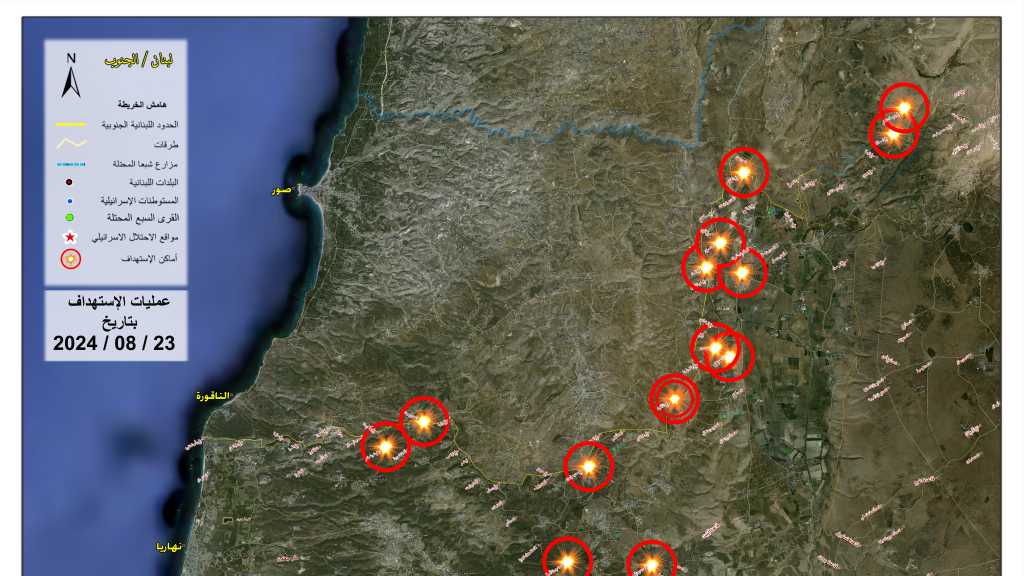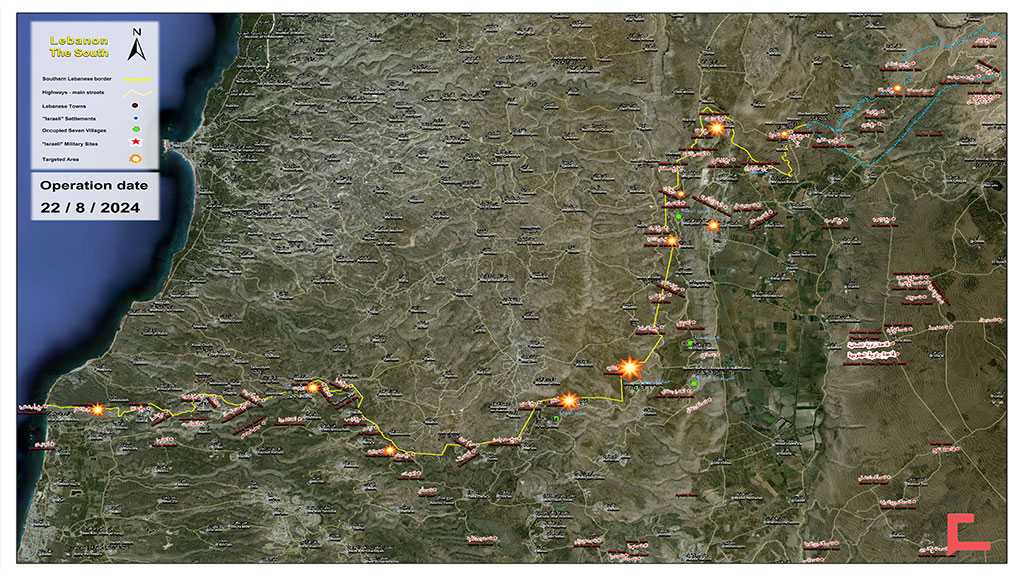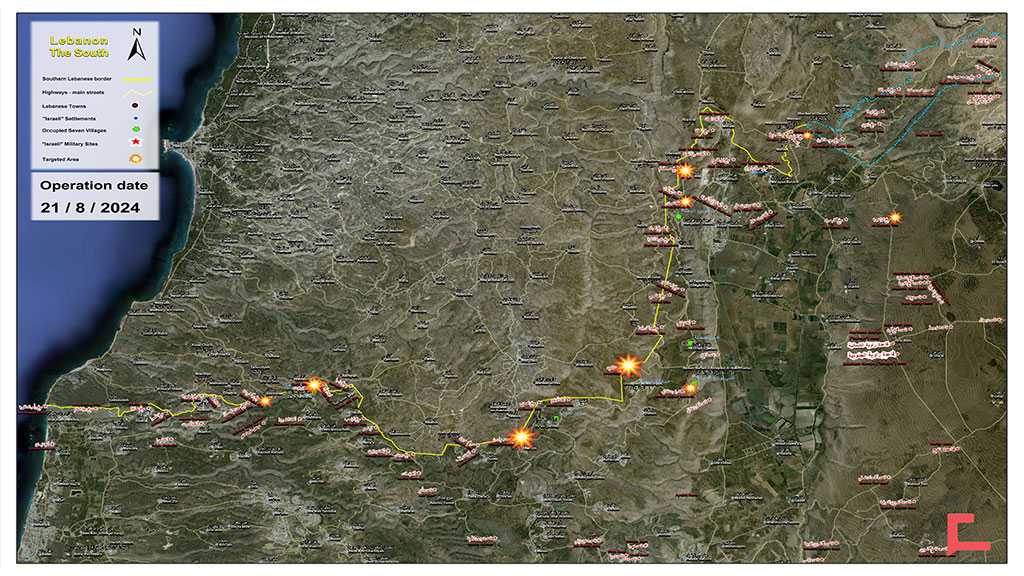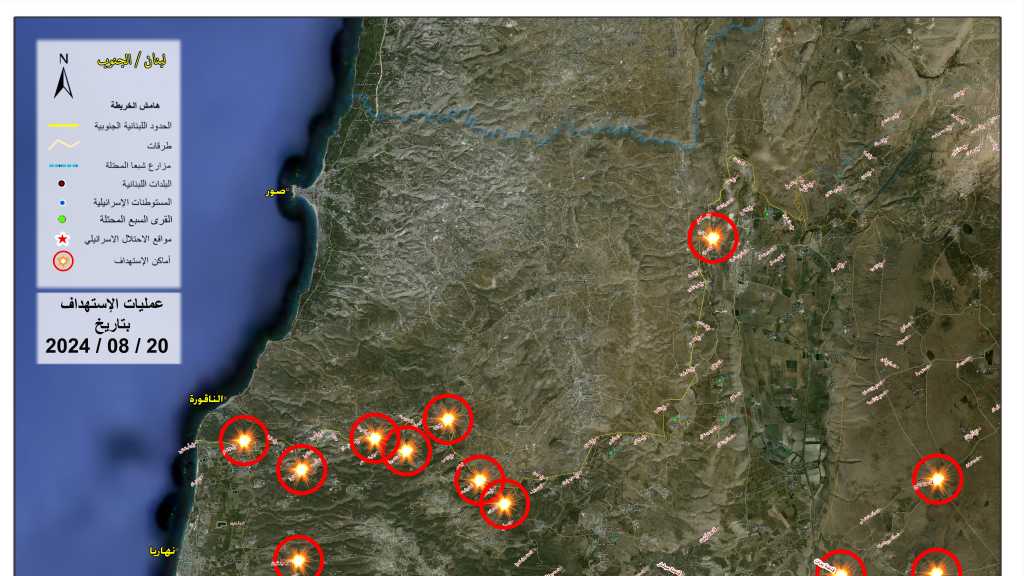Hezbollah’s Deputy SG: ‘Israel’ Failed & To Negotiate, Hezbollah Prepared for Any Scenario
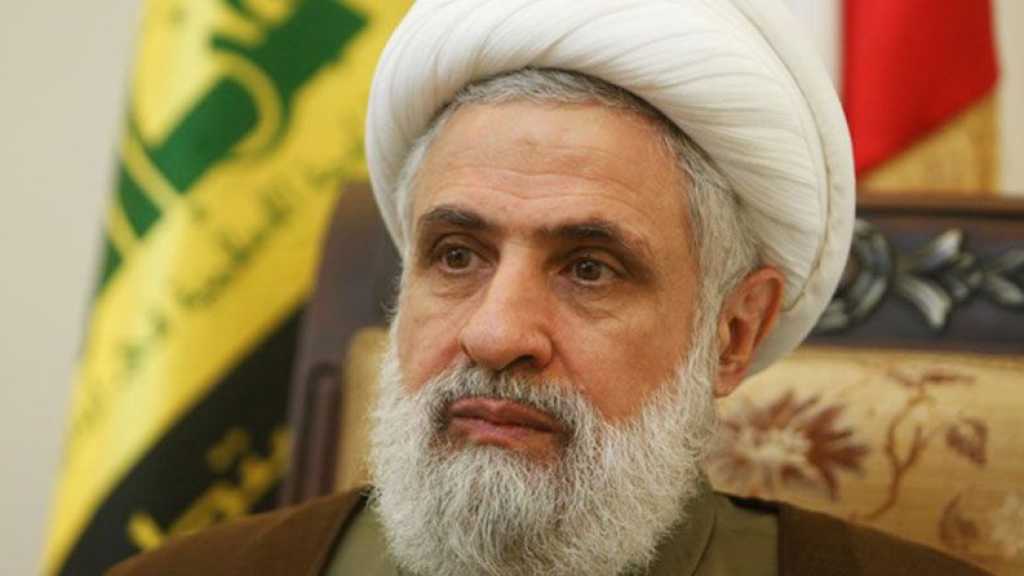
By Staff
The Deputy Secretary-General of Lebanon’s Hezbollah His Eminence Sheikh Naim Qassem, said “Israel” has failed to achieve all of its stated objectives on Gaza.
“The nine-month steadfastness of the Palestinian resistance and people thwarted all of the ‘Israeli’ objectives announced at the beginning of its aggression against Gaza,” the deputy Hezbollah chief told Sputnik Radio.
“The aggression against Gaza has been ongoing for nine months, and from the beginning, the ‘Israeli’ army believed that this war would be resolved within three months, ending with an ‘Israeli’ victory, through which it would crush the Hamas movement and free the captives,” he added.
Sheikh Qassem pointed out that “the steadfastness of the Palestinian people and their great sacrifices, which include between 130,000 and 140,000 martyrs and wounded in the genocidal and starvation war that has US and European support, brought ‘Israel’ to a dead end. The ‘Israelis’ are trying to figure out whether they should negotiate or carry on with the war of attrition that might result in disaster and affect them before it affects the Palestinian people.”
He believes “the ‘Israeli’ army's announcement about the start of a third phase of military operations in Rafah is further evidence of the army’s failure to achieve its objectives. After hitting a dead end, ‘Israel’ will seek a negotiated settlement. It will announce that it is done with Gaza and succeeded in destroying Hamas’ military infrastructure. During the negotiations, ‘Israel’ will scale back its demands and try to present this war to the public as an achievement.”
According to Sheikh Qassem, “‘Israel’ has no choice but to agree to Hamas’ conditions because the latter will not stop resisting if the shooting and aggression against civilians does not stop. Therefore, the main question today remains: ‘Will the ‘Israeli’ army be able to withstand these operations of attrition?’
“As such, prospects for a negotiated settlement are high today especially amid the internal ‘Israeli’ turmoil. The ‘Israeli’ opposition is putting pressure on [Prime Minister Benjamin] Netanyahu. Meanwhile, 67% of the ‘Israeli’ public believes the Prime Minister should no longer govern, not to mention the demonstrations and other internal disputes.”
Regarding the dispute between US President Joe Biden and Netanyahu, Sheikh Qassem said, “There is no disagreement between the two sides over crimes, genocide, and exterminating the Palestinians. But differences remain over tactics and methods. Netanyahu wants to continue his massacres openly, while Biden wants to achieve his goals gradually.”
Sheikh Qassem also touched on any possible impact on Gaza from Biden’s potential departure from the White House, noting that “all external factors do not affect this file. There are two basic factors that change the course of events. The first is the steadfastness of the Palestinian people and resistance. The second is ‘Israel's’ ability to continue the war of attrition and its impact on the ‘Israeli’ interior.”
He explained that “after the war ends, Hamas will have a major role in Palestine, contrary to ‘Israeli’ expectations and desires.”
“Indirect negotiations are taking place with the movement. Therefore, after the ceasefire, Hamas will be strongly present on the Palestinian political scene and will sponsor the implementation of the truce. Consequently, these facts put ‘Israel’ and the United States in a state of confusion regarding their options for the day after the war.
“The legendary performance of the Palestinian resistance in Gaza contributed to overcoming internal Palestinian rivalries.”
Sheikh Qassem asked, “Who recognizes the Palestinian Authority today and who deals with it from the East and the West?”
He outlined some of the many factors that will contribute to the victory of the Palestinian people.
“The first is that the resistance owns the land that made the decision to confront [‘Israel’] until victory or martyrdom. The second is that the resistance is preparing the necessary equipment for this war in addition to being strong willed in creating the future. The third is the factions’ ability to endure.”
Hezbollah’s Deputy Secretary-General stressed that “the resistance axis does not rely on the role of the Arab countries in this battle, given that the Arabs have different political options from the resistance. Some of them were involved in normalization, and the rest were thinking about how they will conclude agreements with ‘Israel’.”
He explained that “the current reality is that there is an axis that includes forces and countries that have made a decision to confront the ‘Israeli’ project, and their top priority is the liberation of Palestine. When this goal is achieved, the Arab countries will remain neutral.”
Sheikh Qassem said “October 7 changed the equation in the region, and Palestine became the number one cause in the world after being on the verge of extinction. As for normalization, it is a secondary factor that will not affect the Palestinian cause, while the influential factor in this file is the success of the resistance in confronting ‘Israel’.”
Regarding Western public opinion and demonstrations in American universities, Sheikh Qassem said, “The Al-Aqsa Flood Operation exposed the deception of American values, which portrayed themselves as universal human values that sanctify rights and justice. Thus, the West, especially the US and Europe, no longer constitute a model of global values because they supported and financed crime. This Western movement is a sign of major change in Western public opinion and is a positive point in the history of our struggle with the ‘Israeli’ army in favor of our rights and our lands.”
During the interview, Sheikh Qassem also spoke about developments on Lebanon’s southern front, specifically with regard to the assassinations of Hezbollah commanders.
“On October 8, the party announced that the southern Lebanon front would be a support front, and we have set the distance of the confrontation, which ranges from 3 to 5 km at the military, and intelligence levels in addition to not attacking civilians. Whenever the “Israeli” army exceeded this range or bombs civilians, we committed to an appropriate response that is consistent with our plan in the confrontation process,” he explained.
Sheikh Qassem added that “Lebanon’s Hezbollah is convinced that it will make sacrifices in this battle, and the “Israelis” did not make a mistake when the “Israeli” army announced that it had hit quantitative targets. Meanwhile, the resistance hits quantitative targets, barracks, officers, and spy sites on a daily basis. Thus, our achievements are great, and in many cases, the ‘Israelis’ do not announce the extent of their losses.”
Sheikh Qassem said “there are no prospects for war expanding in the near term, but Hezbollah is prepared for the worst scenarios. The party does not build its military position according to political analyses, but rather according to information and battlefield results.”
Sheikh Qassem also sent a message to certain currents in Lebanon.
“Those inside Lebanon dreaming of a war to disturb or weaken Hezbollah, will see disturbing dreams because reality is not affected by their perceptions, and they do not have any effectiveness on the ground. There is a strong resistance facing the ‘Israeli’ enemy and will triumph, and they will be more upset.”
He said the “the resistance’s victory” can be characterized as “an indirect victory, which includes preventing the enemy from achieving its goals, preventing its expansion and occupying more areas, and preventing ‘Israel’ from eliminating the resistance.”

